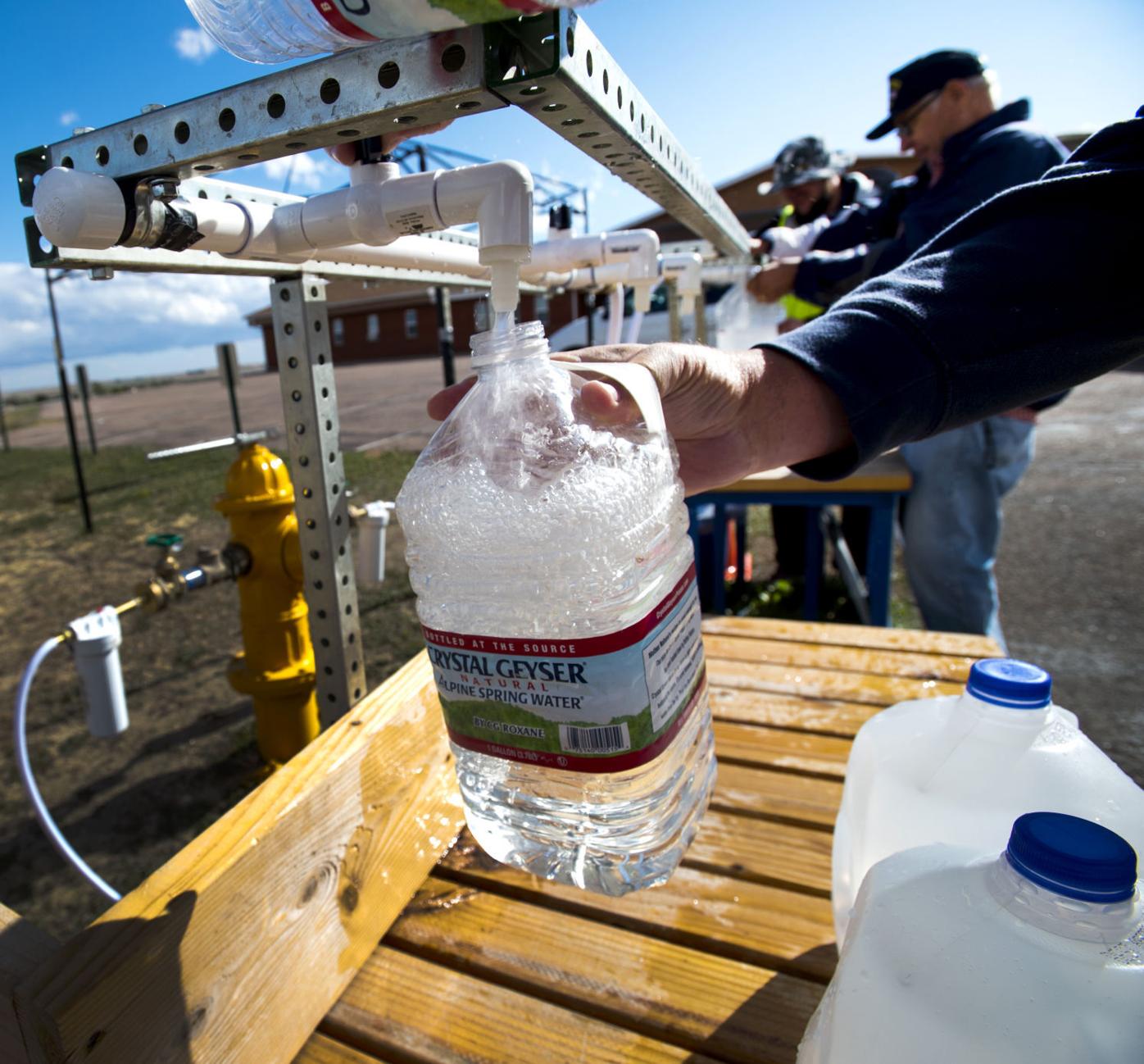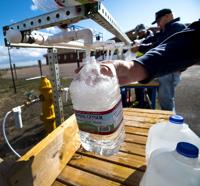Bennet, Hickenlooper urge U.S. Air Force to address ‘forever chemicals’ contamination in El Paso County
Colorado’s two U.S. senators on Friday urged the U.S. Air Force to address water contamination from “forever chemicals” in El Paso County.
In a letter, U.S. Sens. Michael Bennet and John Hickenlooper said polyfluoroalkyl substances (PFAS) has contaminated the Widefield aquifer, which provides drinking water to thousands of residents and supplies surface water to area ponds, some of which Coloradans use for recreational fishing.
The two senators asked the U.S. Air Force to expand a pilot program that seeks to remove PFAS from water and cover contaminated areas in the county. They also requested the Biden administration to partner with Colorado in taking additional steps to address PFAS contamination resulting from military activities.

FILE PHOTO - Residents fill up jugs with drinkable water at a water station on Powers and Fontaine blvds on Thursday, Oct. 6, 2016. (The Gazette, Christian Murdock)
CHRISTIAN MURDOCK, THE GAZETTE

FILE PHOTO – Residents fill up jugs with drinkable water at a water station on Powers and Fontaine blvds on Thursday, Oct. 6, 2016. (The Gazette, Christian Murdock)
“We understand that multiple pilot projects are ongoing at Peterson Space Force Base to test technologies that can remove PFAS from groundwater and soils,” Bennet and Hickenlooper wrote. “Given the contamination discovered in the surface water of El Paso County linked to Air Force operations, we request that a pilot project be conducted at Willow Springs pond to test technologies which may be used to remove PFAS from surface water bodies.”
PFAS contamination in the Widefield aquifer south of Peterson Air Force Base affects some 80,000 people in the Security-Widefield-Fountain area. Discovered in 2016, more than $50 million in funding for Air Force environmental restoration and remediation has been spent, primarily on protecting drinking water for the affected communities.
The senators’ letter followed the U.S. Environmental Protection Agency’s warning this month that concentrations of “forever chemicals” in drinking water that are much lower than previously believed may pose negative health effects.
The EPA announced the advisory, which drastically lowered the agency’s recommendations on safe limits for drinking water, a day after another federal agency said residents of the Security-Widefield area in El Paso County near Peterson Space Base showed elevated levels of “forever chemicals” in their blood, compared to the national average.
Studies suggest that high levels of PFAS — ubiquitous chemicals used in industry that can be found in nonstick cookware, stain-resistant fabrics and carpets and cosmetics — might lead to increased cholesterol levels, decreases in infant birth weights and higher risk of high blood pressure or preeclampsia in pregnant women, as well as increased risk of kidney and testicular cancer.
In Colorado, the Fountain-Widefield-Security area is one of the state’s biggest PFAS contamination sites due to the long-term use of PFAS-containing firefighting foam at Peterson Air Force (now Space Force) Base beginning in the 1970s. Water and soil testing in 2016 by the Air Force revealed PFAS levels of 240,000 parts per trillion in soil samples and more than 88,000 parts per trillion in groundwater at seven locations on the base. The base is now a designated EPA Superfund site.
Other PFAS contamination sites include Buckley Air Force Base in Aurora and the Suncor Refinery in Commerce City.
Manufacturing of firefighting foam containing PFAS chemicals ended in the early 2000s, but tens of thousands of gallons still remain stored in fire departments nationwide and can still be used because the federal government has not issued regulations banning its use.





